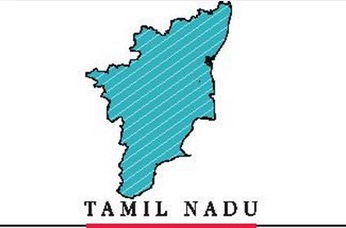

|
Syllabus: Prelims GS Paper I : Indian Polity and Governance – Constitution, Political System, Panchayati Raj, Public Policy, Rights Issues, etc. Mains GS Paper II : Appointment to various Constitutional posts, powers, functions and responsibilities of various Constitutional Bodies; Salient features of the Representation of People’s Act. |
Context : Tamil Nadu Government has announced to set up a commission for examining methodologies to collect caste-wise data and submit a report.
 Background : Number of parties and caste groups have been demanding a census to determine the ratio of reservation to their population in the education sector and government jobs. This special panel, the first since the 1950s, has been announced following the long-standing demand of the community concentrated in TN’s northern districts, for 20% reservation.
Background : Number of parties and caste groups have been demanding a census to determine the ratio of reservation to their population in the education sector and government jobs. This special panel, the first since the 1950s, has been announced following the long-standing demand of the community concentrated in TN’s northern districts, for 20% reservation.
In Detail
The idea of a caste census is back in the realm of public debate, following the announcement of the Tamil Nadu government’s decision to establish a commission to collect caste-wise data. The move may have been born out of political expediency, in response to the restive pre-election agitation organised by the Pattali Makkal Katchi (PMK ) demanding 20% exclusive reservation in education and government jobs for the Vanniyar community.
Although, There is a social and legal necessity for compiling caste-wise data. The Supreme Court has been asking States to produce quantifiable data to justify their levels of reservation, and it would help Tamil Nadu to retain its 69% total reservation. At the same time, some castes that have either electoral or numerical importance across India have been restive about the manner in which affirmative action programmes based on classes and communities have been implemented so far.
Sections of the Vanniyars community, in Tamil Nadu, stirred a violent agitation in 1987-88, resulted in the creation of a ‘most backward classes’ category entitled to 20% reservation, are apparently dissatisfied about being clubbed with over a hundred other castes.
Task Assigned to the Commission
The proposed commission may not conduct an elaborate enumeration on the lines of the Centre’s decennial census. Its mandate is to examine the methodology for collecting caste-wise particulars, conduct a survey based on that and submit a report.
In the present scenario, it would be a challenge to arrive at a sound assessment of the social and educational backwardness of each caste.
Socio-economic Caste Census
Census of India has not collected caste-wise data since 1931, with the exception of details about SCs and STs. The Centre conducted a ‘socio-economic caste census’ in 2011, in an attempt to link the collection of caste data along with socio-economic data so that there could be a comprehensive assessment of levels of deprivation and backwardness in society.
Although, presumably because of the lack of reliability of the data collected, or its political and electoral sensitivity, the caste portion of the socio-economic caste census (SECC) has not been disclosed so far. the State Government could possibly seek access to this data pertaining to Tamil Nadu as part of its exercise.
However, it should not treat this as a politically expedient move to quell a possible electoral setback due to the agitation of one party or community. Rather, it should seek to rationalise and deepen its social justice policy with a true assessment of the backwardness of various castes. After all, progress towards a casteless and equal society ought to remain the state’s ultimate goal.
Conclusion
The assembly polls in the state are going to held in the next six months, the government’s move to set up the commission is a strategic one as the entire process, as, from setting up of the commission to the survey, it would take much more time than that and may help it duck the heat. There are views in the government that any favourable move for the Pattali Makkal Katchi (PMK) would lead to a chaotic situation right now as other socially and politically powerful communities, such as Thevars and Goundars, too, would come up with similar quota demands.
Connecting the Article
Question for Prelims : Consider the following statements regarding Office of the Registrar General & Census Commissioner:
1. It was set up under the Registration of Births and Deaths Act.
2. It functions under the Ministry of Home Affairs.
3. It conducted first nationwide census in 1872.
Which of the statements given above is/ are correct ?
(a) 1 only
(b) 2 only
(c) 2 and 3 only
(d) 1, 2 and 3
Question for Mains : Discuss the role and functions of the Office of the Registrar General & Census Commissioner.

Our support team will be happy to assist you!
